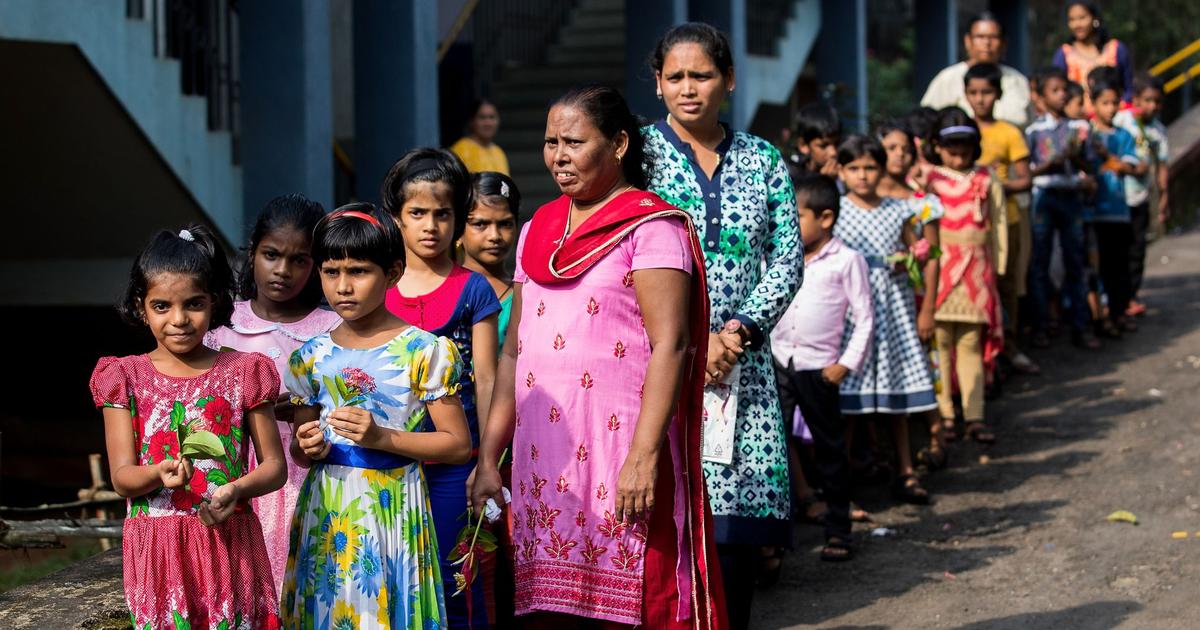Last June,
Isabel Macedo
had her second daughter with
Juan Manuel Urtubey
.
Like
Belita
, her older sister,
Julia
is usually the protagonist of numerous posts from her mother on
, the social network that is popularly known for her happy images.
However, the joy can be overshadowed by comments with a strong charge of violence, discrimination and, sometimes, also ignorance.
And this time she touched Macedo and his seven-month-old baby.
The actress published a series of photos of Julia on the beaches of
Punta del Este
, where they are on vacation and, in addition to the loving responses of those who praised the girl, she also received numerous questions about the baby's body.
In response to the unusual and reprehensible criticism, Macedo made a new publication where, next to the photo with his daughter, he wrote: “
I love you.
For me you are perfect
.
We will let negative feedback go.
For me, someone's physical appearance will never define them.
That's how I'm going to educate them."
Julia, the daughter of Isabel Macedo.
Instagram photo.
Why you should not comment on other people's bodies (not even in children)
Sabrina Critzmann, pediatrician, childcare provider and co-director of the Argentine School of BLW, referred to what happened with Macedo and told
Clarín
that "
this case is a clear and crude example of what we see every day
."
Certain babies and families are challenged for what some believe is underweight, and others for what they consider to be excessive.
“Not commenting on the bodies of others is a concept that has been gaining strength in recent years, which, on a social level, is very happy.
But there is still a lot left, we still have very hegemonic canons of beauty, although all bodies are diverse (both adults and children)”, pointed out the author of
Comer y criar.
Pediatric guide to healthy eating for the whole family
(Planet).
The photos of the baptism of Julia, the youngest daughter of Isabel Macedo and Juan Urtubey.
Instagram photo.
The doctor mentioned that “it
is very common to think about childhood bodies in many contexts
.
Everyone asks the smaller baby if he's growing well, if that milk feeds him, if they consulted another pediatrician "because it can't be that he's so skinny."
And in the opposite situation, if the baby has rolls, they criticize him: 'Oh, it can't be, your baby is very fat'”.
Critzmann (on Instagram, @sabrina.pediatriaypuericultura) explained the consequences of this type of appreciation: "Criticism about the body can greatly affect self-esteem and self-perception, it can generate anguish and anxiety."
And he added: “
This is seen from early childhood
.
It is very common that the bodies of the boys are spoken aloud as if they were not there, it is ignored that they are people and that there are comments that are not positive and that can hurt (in the short and medium term) ”.
The healthy development of a baby is not measured in photos
Julia and Juan Manuel Urtubey.
Instagram photo.
Is a photo on a social network enough to determine the health of a boy or a girl?
The answer, obviously, is negative.
“During the different pediatric consultations we are observing the growth and development of children.
Among the different parameters we see the weight, the height, how the head is growing and we also evaluate the development patterns”, explained the specialist.
It is not about individuality but about a whole.
“Pediatricians use different tools, for example, growth charts.
But it is very important to know that with a single value, with a single measurement, we do not have much information.
What we have to see is the film of how that childhood grows”.
“
A single parameter does not tell us anything
, what we have to see is the correlation between all the growth”, he emphasized.
So that there are no doubts, the pediatrician stated: “
None of this can be concluded from a photo
.
To make a good diagnosis of how growth is going, you need to know all the measurements.”
Diets, appearance and mental health
From the artivist and feminist project "Mujeres Que No Fueron Tapa", founded by the lawyer and communicator
Lala Pasquinelli
, a survey was carried out among 8,100 women, within the framework of the #HermanaSoltaLaPanza campaign.
It inquired about the reasons and the effect of diets to lose weight.
The survey (where 85% of those consulted were between 25 and 50 years old and 91% were Argentine) determined that women start this type of diet from a very early age (from 5 years of age or earlier).
"We are educated in the idea that
the most important thing to achieve success and happiness in women's lives is physical appearance, and that appearance requires thinness
," they say from MQNFT, while adding that many times this generates not only failed results but the affectation of mental health.
The reflection of Isabel Macedo.
Instagram.
Among the main conclusions, the following stand out:
97.6% of the interviewees had ever followed a diet to lose weight.
39.8% did it between 2 and 10 times;
32.2%, more than 20 times;
19.2%, between 10 and 20 times;
6.4% only once and barely 2.4% never did this type of diet.
46.1% dedicated between one and 10 years to diets;
19.9%, less than a year;
17.1%, all their lives;
14.5%, more than 10 years and 2.4%, nothing.
56.5% stated that they spent all day thinking about what they ate, what they couldn't eat, the calories in each food
and more.
29.2% spent between one and six hours a day thinking about these thoughts and 14.3% less than an hour a day.
88.7% of the respondents were told at some point in their lives that they had to diet to lose weight;
against 11.3% who were never mentioned.
66.9% maintained that the first time someone told them that they had to lose weight was between the ages of 5 and 17
;
19.8%, after 17;
2%, before they were 5 and 11% never indicated it.
Julia Urtubey, the daughter of Isabel Macedo.
Instagram photo.
The first person to tell them they had to diet was:
the mother (30.1%), themselves (26.5%), a health professional (12.3%), the father (5.3%), friends (4.5%), other relatives (6.7%) and other people (9%).
Among the reasons that the respondents mentioned when undergoing a diet were: believing that they
would be happier being skinny (31.5%)
, pressure from the family environment (19.1%), not being loved if they were fat (16 1%), “getting to summer” and being able to wear a bikini (13.9%), health (5.1%) and others.
67.3% affirmed that after the diets their mental health worsened, against only 5.5% who said that it improved.
27.2% maintained that the diets had no consequences on their mental health.
look also
Viral challenges on TikTok: how to prevent and what to teach boys and girls
10 toxic phrases that we should not use with boys and girls













